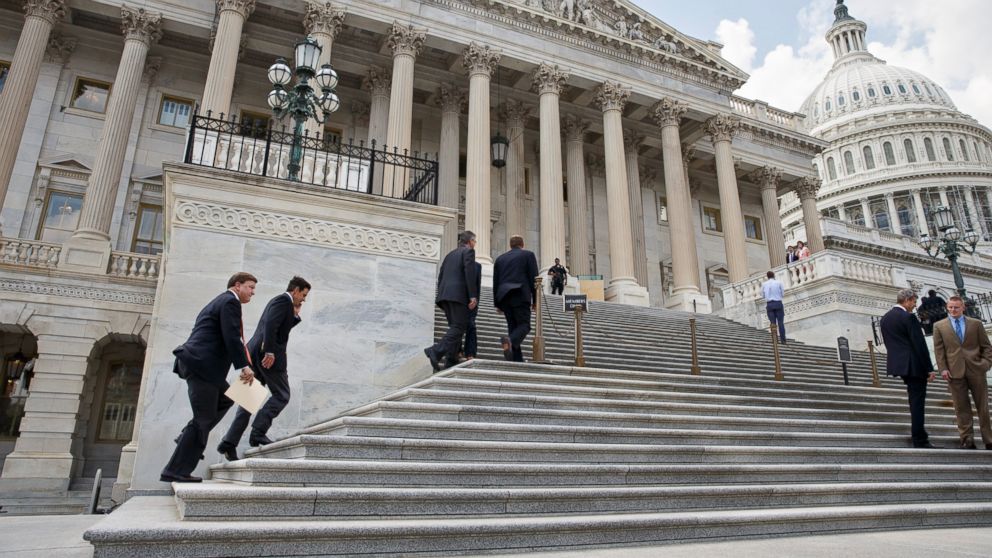Seven Big Items Congress Won't Get to This Fall
Here’s what definitely won’t come up before Election Day.

— -- With Election Day looming, the House and Senate have returned to Washington with a full agenda. There are only 12 days of legislative work on the calendar, and with most of Congress on the ballot in November, lawmakers in both parties hope to tread lightly and avoid confrontation that could distract from re-election campaigns. Here's what definitely won't come up before Election Day.
The Minimum Wage
It’s been five years since the federal minimum wage has been raised. It currently sits at $7.25 an hour. The bill H.R. 1010, Fair Minimum Wage Act of 2013, was introduced to the Senate in March of last year. If enacted, the federal minimum wage would be raised to $10.10 an hour over the course of two years, and the minimum wage for tipped workers would be $3.00 an hour. But the bill has only a 2 percent chance of being enacted, according to Govtrack. In April, a measure on the minimum wage failed to advance in the Democratic-controlled Senate. With Republicans referring to the measure as “political theater,” a vote is even less likely in the House.
Comprehensive Immigration Reform
In June of 2013, a bipartisan group of senators passed a sweeping immigration reform bill that would provide a pathway to citizenship for 11 million undocumented immigrants, reform visa programs and increase border security. House Speaker John Boehner said President Barack Obama was “feeding distrust” with executive orders, and told Obama in June the House wouldn’t vote on the bill this year. While the Ohio Republican recently said Congress could vote next year, the landscape of long-term landscape changes with control of the Senate. With Obama walking back his promise to go-it-alone with executive action last week, movement on the issues -- big or small -- will have to wait.
A Renewed Push for Gun Control
More than 74 school shootings have occurred since the Sandy Hook Elementary School shooting in Connecticut vaulted gun control into the national political conversation, according to a tally by the gun control advocacy group Everytown for Gun Safety. The only major play at bipartisan gun control legislation in the aftermath, the Manchin-Toomey bill, was defeated in the Senate in April 2013. Despite the efforts of advocacy groups headed by the likes of Gabby Giffords and Michael Bloomberg to put gun control on the agenda in races across the country, Congress hasn’t budged. Instead, the fight has localized. Eleven states have added laws to nullify federal gun regulations since 2008, according to News21, an investigative journalism organization.
The Federal Budget
With both parties wary of another government shutdown, members of Congress will likely pass a continuing resolution by Oct.1, the start of the next fiscal year, to keep the lights on in the federal government. The 10-week stopgap would put appropriations disagreements on hold until after Election Day, when voters would have a chance to punish lawmakers for any brinksmanship.




